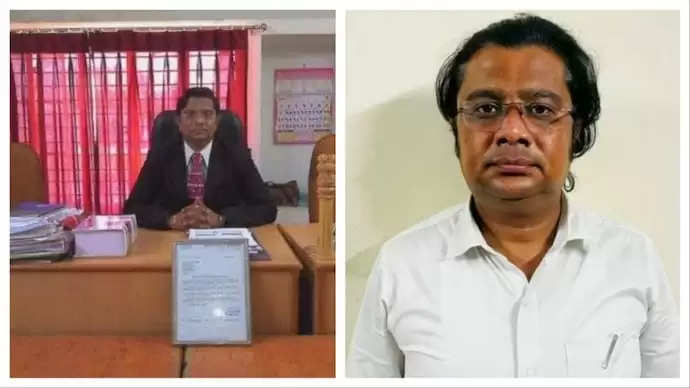Man Arrested for Running Fake Court in Gujarat

Unbelievably, a 37-year-old guy called Morris Samuel Christian has been detained in Gujarat for supposedly running a phoney court for the previous five years. Acting as a judge, Christian built a complex front meant to fool people caught in land conflicts by charging them large sums for spurious legal advice.
Christian was arrested by the authorities in Gandhinagar, where he had created a convincing courtroom. According to reports, he went to considerable efforts to create an air of credibility, using phoney court officials—including staff members and advocates—to support his scam. This complex arrangement was meant to attract gullible customers looking for fast fixes for land-related problems.
The First Information Report (FIR) claims that Christian not only oversaw the designated court but also acted as a litigant. He passed rules, launched lawsuits, and even tried to give the applicants ownership of land valued crores. His strategy targeted those looking for justice, using their weaknesses and trust to further financial advantage.
Authorities were alerted about Christian's dishonest behaviour following several allegations of questionable court procedures. The next look turned up a pattern of dishonesty going beyond his recent activities. Christian had earlier been afoul of the law in 2015 on a cheating allegation, implying a long-standing propensity towards dishonesty.
Legal experts have voiced concern about the possible harm done to the integrity of the court system by Christian's activities. Such events can compromise the life of people already dealing with difficult land conflicts and damage public confidence in just judicial procedures.
The arrest has spurred debates on the need of more rigorous rules and supervision inside the judicial system, particularly in issues involving land ownership and conflicts. Authorities stress the need of public awareness to stop people from becoming victims of such dishonest programs.

In view of this event, law enforcement authorities have advised people to check the validity of legal procedures and consult reputable solicitors. Those who attended Christian's fictitious court have been urged to come forward to help with continuous investigations, therefore perhaps resulting in more charges against him.
As the story develops, the effects of this complex lie still ripples over Gujarat. Christian now faces severe charges of impersonation and cheating under the Indian Penal Code, hence systematic adjustments are desperately needed to prevent such events in the future.
The episode reminds us sharply of the weaknesses in the judicial system and the great need of citizen alertness. It emphasises the need of not only having strong legal systems in place but also of making sure those seeking justice are sufficiently informed and shielded from those trying to take advantage of their circumstances for personal benefit.
The emphasis stays on revealing the whole scope of Christian's activities and the count of people impacted by his false behaviour as authorities keep looking into it. The community is left to consider the disturbing truth that a façade of justice had been painstakingly created right under their eyes, which calls for reform immediately and raises legal affairs' awareness.
--
